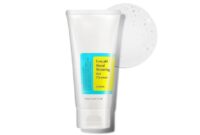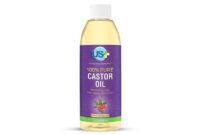You love your furry pal, but you can’t help but scratch your head when you see them constantly scratching themselves. It’s not just uncomfortable for them, it’s frustrating for you too.
You’ve tried every solution, from changing their diet to getting rid of fleas, but nothing seems to work. The answer to your dog’s itchiness might just be a product away.
If you’re tired of watching your dog suffer and want to find the best product for their itchy skin, look no further. In this article, we’ll explore the different types of products that can help alleviate your dog’s itchiness.
From topical treatments to soothing shampoos, we’ll cover it all. So, settle in and get ready to learn about the best products for your furry friend’s itchy skin.
Identifying the Cause of Your Dog’s Itchiness
You’re probably wondering what’s causing your dog’s constant scratching and licking, but don’t worry, there are a variety of factors that could be contributing to their itchiness.
One of the most common culprits is food allergies. Dogs can develop allergies to certain proteins or ingredients in their food, causing them to scratch, lick, and even develop skin rashes. To determine if your dog has a food allergy, you’ll need to switch them to a hypoallergenic diet and monitor their symptoms. If their itchiness improves after the diet change, it’s likely that their previous food was the cause of their discomfort.
Another factor to consider is environmental triggers. Just like humans, dogs can be allergic to pollen, mold, and other airborne allergens. If your dog’s itchiness seems to be seasonal or worse when they’re outside, it’s possible that they’re experiencing an allergic reaction.
You can try minimizing their time outside during peak allergy seasons or using air purifiers in your home to reduce the amount of allergens in the air. If their symptoms persist, it’s best to consult with your veterinarian to determine the best course of action.
Topical Treatments for Skin Irritation
Topical treatments can be effective in relieving skin irritation in canines. If your dog is experiencing mild itching or redness, you may want to consider using a topical treatment before visiting a vet.
Home remedies like aloe vera gel or oatmeal baths can provide temporary relief, but it’s important to seek vet recommendations for a more serious condition.
There are many topical treatments available on the market, including shampoos, sprays, and creams. Look for products that contain ingredients like hydrocortisone or lidocaine, which can help reduce inflammation and itching.
Always follow the instructions carefully and monitor your dog’s reaction to the treatment. If the irritation persists or worsens, it’s important to seek veterinary care for a proper diagnosis and treatment plan.
Oral Medications for Allergy Relief
Now, if your furry friend is suffering from severe allergies and requires more than just topical treatments, oral medications can provide much-needed relief.
Antihistamines are a commonly prescribed medication for dogs with allergies. They work by blocking the histamine receptors in your dog’s body, which are responsible for causing itching, swelling, and other symptoms associated with allergies. Some popular antihistamine options for dogs include Benadryl, Zyrtec, and Claritin. It’s important to note, however, that not all antihistamines are safe for dogs, so it’s best to consult with your veterinarian before giving your dog any medication.
Another option for allergy relief in dogs is steroid alternatives, such as Apoquel or Cytopoint. These medications work by targeting specific molecules in your dog’s immune system that are responsible for causing allergic reactions. They can be very effective at reducing itching and inflammation, and usually have fewer side effects than traditional steroids. However, they can be more expensive than antihistamines and may not be suitable for all dogs.
As always, it’s important to work closely with your veterinarian to determine the best course of treatment for your furry friend.
Soothing Shampoos and Conditioners
Pamper your pup with a luxurious bath using specialized shampoos and conditioners that can provide soothing relief for their irritated skin. Look for products that contain natural ingredients, such as oatmeal, aloe vera, and chamomile. These herbal remedies have been shown to reduce itching and inflammation, while also moisturizing and conditioning your dog’s coat.
If you prefer to make your own DIY solutions, there are plenty of recipes available online that use ingredients you may already have at home. For example, you can mix together equal parts of apple cider vinegar and water to create a simple rinse that can help soothe your dog’s skin. Just be sure to do your research and test any new products or solutions on a small area of your dog’s skin before applying it all over.
With the right care and attention, you can help your itchy dog find relief and comfort.
Natural Remedies for Itchy Dogs
Finding relief for your furry friend’s constant itchiness can be a challenge, but there are natural remedies that can help soothe their discomfort.
Herbal remedies are one way to alleviate your dog’s itchiness. Chamomile and lavender have natural anti-inflammatory properties that can help reduce itching and inflammation. You can make a tea out of these herbs and spray it onto your dog’s itchy spots or add it to their bathwater.
Another herbal remedy is aloe vera, which can help soothe irritated skin and reduce inflammation. Simply apply a small amount of aloe vera gel to your dog’s itchy areas.
Dietary changes can also help alleviate your dog’s itchiness. Some dogs may have food allergies or sensitivities that can contribute to their itchy skin. Consider switching to a hypoallergenic or limited ingredient diet to see if that helps. Adding omega-3 fatty acids to your dog’s diet can also help reduce inflammation and improve skin health. You can find omega-3 supplements specifically made for dogs or add foods like salmon or flaxseed to their diet.
Remember to always consult with your veterinarian before making any dietary changes or using herbal remedies for your dog.
Frequently Asked Questions
Can itchy skin in dogs be a sign of a more serious underlying condition?
Did you know that up to 50% of dogs experience some form of skin irritation or itching in their lifetime? While some cases may be mild and easily treatable, itchy skin in dogs can also be a sign of more serious underlying conditions such as allergies, infections, or even cancer.
It’s important to schedule a veterinary consultation if your dog is experiencing persistent itching to rule out any potential health issues. Don’t hesitate to seek professional advice as the earlier these conditions are identified, the better the chances of successful treatment.
So, if your furry friend is feeling uncomfortable, it’s time to take action and prioritize their health and well-being.
Are there any home remedies that can help alleviate my dog’s itchiness?
If your furry friend is suffering from itchiness, there are several home remedies and natural solutions that may help alleviate their discomfort.
One of the most effective remedies is adding coconut oil to their diet, as it contains anti-inflammatory and anti-fungal properties that can soothe their skin.
Additionally, oatmeal baths can help relieve itching and reduce inflammation, while apple cider vinegar can help restore the natural pH balance of their skin.
You can also try giving your dog a chamomile tea rinse or applying aloe vera gel to affected areas.
Remember to consult with your veterinarian before trying any new remedies or solutions, and always monitor your dog’s condition closely.
Can certain foods or treats exacerbate my dog’s skin irritation?
Have you ever wondered if the food or treats you’re giving your furry friend could be making their skin irritation worse? The answer is yes, certain foods can exacerbate your dog’s itchiness. Foods to avoid include those containing grains, artificial preservatives, and fillers.
Instead, opt for a natural diet consisting of lean proteins, vegetables, and fruits. Additionally, there are many natural remedies that can help alleviate your dog’s itchiness, such as oatmeal baths, apple cider vinegar rinses, and coconut oil massages.
By being mindful of your dog’s diet and incorporating natural remedies, you can help soothe their skin irritation and improve their overall health and well-being.
How long should I wait before seeing improvement in my dog’s skin after starting treatment?
When it comes to treating your dog’s skin irritation, there are a few factors that can affect how quickly you see improvement. First, the severity of the irritation will play a role in how long it takes for treatment to be effective.
Additionally, the specific treatment you’re using and how often you’re administering it can impact the speed of improvement. If you’ve been treating your dog’s skin irritation for a week or more without seeing any improvement, it’s important to consult with your veterinarian.
They can help determine if there are any underlying health issues or if a different course of treatment is needed. Remember, your dog’s health and comfort should always be a top priority, so don’t hesitate to seek professional help if needed.
Is it safe to use multiple treatments at once, such as a topical treatment and an oral medication?
When it comes to treating your dog’s itchy skin, combining treatments can have both pros and cons. While using a topical treatment and an oral medication simultaneously may offer faster relief, there is also a risk of potential interactions between the two that could cause unwanted side effects.
It’s important to consult with your veterinarian before combining treatments to ensure their safety and effectiveness. Additionally, while there are some home remedies that may provide relief for your dog’s itchy skin, it’s important to consider their effectiveness and safety. Some remedies may actually worsen your dog’s condition, so it’s always best to consult with your vet before trying any at-home treatments.
Remember, your dog’s health and comfort should always come first.
Conclusion
Congratulations on taking the first step towards finding the best product for your itchy dog. By identifying the cause of your dog’s itchiness, you can select the right treatment option that will provide relief to your furry friend.
Just like how a captain navigates a ship through rough waters, you can navigate your dog through the rough seas of itchiness. With topical treatments, oral medications, soothing shampoos, and natural remedies, you have a range of options to choose from.
Remember, every dog is unique and what works for one may not work for another. Trust your instincts, consult with your veterinarian, and choose the best product that will give your dog the relief they deserve.
Happy sailing!


